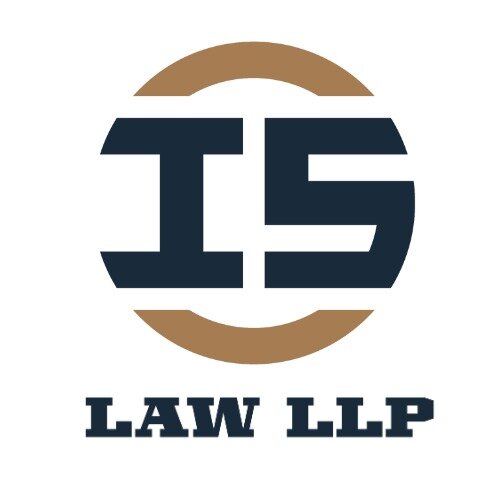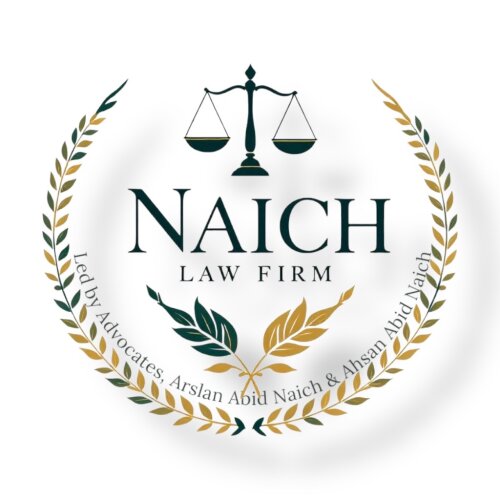Best Drugs & Medical Devices Lawyers in Pakistan
Share your needs with us, get contacted by law firms.
Free. Takes 2 min.
Or refine your search by selecting a city:
List of the best lawyers in Pakistan
About Drugs & Medical Devices Law in Pakistan
Drugs and medical devices in Pakistan are regulated under a framework designed to ensure their safety, efficacy, and quality. This field is primarily governed by the Drug Regulatory Authority of Pakistan (DRAP), which oversees drug manufacturing, registration, and distribution. Additionally, medical devices must adhere to specific standards, aligning with international guidelines. The regulation in this sector aims to protect public health and maintain high standards within the pharmaceutical and medical device industries.
Why You May Need a Lawyer
Legal expertise in the field of drugs and medical devices might be necessary in various situations, including:
- Compliance issues: Ensuring adherence to local and international drug regulations.
- Approval processes: Navigating the registration and licensing procedures for new drugs and devices.
- Intellectual property: Protecting patents or trademarks associated with pharmaceutical products.
- Disputes and litigation: Addressing any legal disputes related to drugs and medical devices.
- Product liability: Handling cases related to the adverse effects or recalls of drugs or devices.
- Distribution agreements: Drafting and negotiating contracts for the distribution of medical products.
Local Laws Overview
The legal landscape for drugs and medical devices in Pakistan is built on several key laws and regulations:
- Drug Act, 1976: This is the foundational legal document governing all matters related to drugs, including their manufacture, sale, and distribution.
- DRAP Act, 2012: Establishes the Drug Regulatory Authority of Pakistan to regulate the pharmaceutical and health sectors.
- Pharmacy Act, 1967: Focuses on the regulation of pharmacy education and the practice of pharmacy.
- Standards and Quality Control: Regulations pertaining to the standards manufacturers must adhere to, ensuring product safety and efficacy.
Frequently Asked Questions
What is the role of the Drug Regulatory Authority of Pakistan (DRAP)?
DRAP's primary function is to regulate the manufacturing, import, export, storage, distribution, and sale of therapeutic goods. It ensures the availability of quality products to the public.
How are new drugs approved in Pakistan?
New drugs must undergo a rigorous registration process, including clinical trials. DRAP reviews these data before granting approval.
What are the penalties for non-compliance with drug regulations?
Penalties can include fines, suspension of licenses, and even imprisonment for severe violations affecting public safety.
How can I ensure my medical device is compliant with Pakistani laws?
Manufacturers or importers must ensure their devices meet the standards set by DRAP. This usually involves product registration and adherence to quality control measures.
What should I do if I suspect a drug is counterfeit?
Report any suspicions to DRAP or local health authorities who will investigate and take necessary action.
Are there any specific labeling requirements for drugs in Pakistan?
Yes, drugs must be labeled in accordance with guidelines provided by DRAP, including the name, dosage, and manufacturing details.
Is there a process for reporting adverse drug reactions?
Yes, adverse reactions can be reported through DRAP's pharmacovigilance system to monitor the safety of drugs.
Can generic drugs be sold legally in Pakistan?
Yes, generic drugs can be sold provided they meet the regulatory standards set by DRAP.
How do intellectual property rights affect the pharmaceutical industry?
Intellectual property rights, such as patents, protect the formulation and manufacturing process, providing legal recourse against unauthorized use.
What constitutes a 'medical device' under Pakistani law?
According to DRAP, a medical device includes any instrument, apparatus, or similar article intended for diagnosing, treating, or preventing disease.
Additional Resources
For further information, consider reaching out to the following resources:
- Drug Regulatory Authority of Pakistan (DRAP): Provides guidelines, regulatory updates, and safety alerts.
- Pakistan Pharmaceutical Manufacturers Association (PPMA): Represents the interests of pharmaceutical manufacturers in Pakistan.
- World Health Organization (WHO) Country Office: Offers technical support and guidance on health regulations.
Next Steps
If you require legal assistance concerning drugs and medical devices, consider taking the following steps:
- Identify the specific issue you are facing and gather relevant documents.
- Consult with a legal professional specializing in drugs and medical devices law. They can provide valuable guidance and representation.
- Contact DRAP for guidance on compliance and regulatory questions.
- Stay informed about the latest regulatory changes and industry best practices.
Lawzana helps you find the best lawyers and law firms in Pakistan through a curated and pre-screened list of qualified legal professionals. Our platform offers rankings and detailed profiles of attorneys and law firms, allowing you to compare based on practice areas, including Drugs & Medical Devices, experience, and client feedback.
Each profile includes a description of the firm's areas of practice, client reviews, team members and partners, year of establishment, spoken languages, office locations, contact information, social media presence, and any published articles or resources. Most firms on our platform speak English and are experienced in both local and international legal matters.
Get a quote from top-rated law firms in Pakistan — quickly, securely, and without unnecessary hassle.
Disclaimer:
The information provided on this page is for general informational purposes only and does not constitute legal advice. While we strive to ensure the accuracy and relevance of the content, legal information may change over time, and interpretations of the law can vary. You should always consult with a qualified legal professional for advice specific to your situation.
We disclaim all liability for actions taken or not taken based on the content of this page. If you believe any information is incorrect or outdated, please contact us, and we will review and update it where appropriate.
Browse drugs & medical devices law firms by city in Pakistan
Refine your search by selecting a city.
















